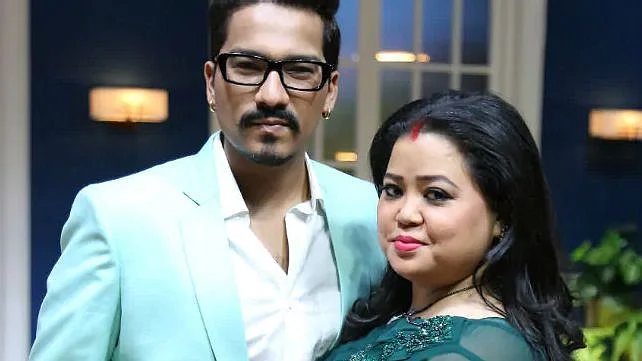The Narcotics Control Bureau (NCB) on Saturday, 21 November, arrested comedian Bharti Singh for consumption and possession of Ganja under the Narcotic Drugs and Psychotropic Substances (NDPS) 1986. The examination of her husband Harsh Limbachiyaa by the bureau is underway.
The Centre’s NDPS Act, 1985 defines India’s law around cannabis and its products and criminalises its sale, possession, transportation, and cultivation in certain forms in India.
What is legal under the NDPS Act? What happens if you are caught with weed? Here’s what you need to know.
What is the definition of ‘cannabis’ under the NDPS Act?
Cannabis – one of the most consumed substances in India, second only to alcohol – was legal in the country until 1984.
The definition of 'cannabis' under the NDPS Act includes:
- Charas, which is “the separated resin, in whatever form, whether crude or purified, obtained from the cannabis plant and also includes concentrated preparation and resin known as hashish oil or liquid hashish”
- Ganja, “the flowering or fruiting tops of the cannabis plant (excluding the seeds and leaves when not accompanied by the tops)”
- Notably “any mixture, with or without any neutral material, of any of the above forms of cannabis or any drink prepared therefrom.”
So, what’s legal as per the NDPS Act?
- Cultivation of cannabis for industrial purposes or for horticulture is legal in India
- There is also an exception made for production, manufacture, possession for medical or scientific purposes or with the government's permission
- The Act specifically prohibits the sale and production of cannabis resin and flowers, while the use of seeds and leaves is allowed.
What happens if you are caught cultivating a cannabis plant?
If found cultivating a cannabis plant, the person can be sent to jail for up to 10 years and be liable to a fine of up to Rs 1 lakh.
But, what happens if I am simply caught with weed? Or any form or cannabis?
- For "small quantity", which is 100 grams of charas/hashish and 1,000 grams of ganja: Jail term of upto six months (unless it’s some refined form, which may see jail time increase to a year), a fine of up to Rs 10,000 or both. In such cases, there is an option to take counselling and therefore avoid a jail term as well.
- For "quantity lesser than commercial quantity but more than small quantity": Imprisonment for up to 10 years, fine of Rs. 1 lakh, or both
- For "commercial quantity": The punishment will be not less than 10 years but may extend to 20 years plus a fine "which shall not be less than Rs 1 lakh but may go up to Rs 2 lakh."
What is Section 27A that Bollywood actor Rhea Chakraborty has been booked under?
Section 27A of the NDPS Act 1985 lays down the punishment for financing – both directly or indirectly – illicit traffic and harbouring offenders. The punishment for this offence can range from imprisonment for 10 to 20 years and a fine of Rs 1-2 lakh.
The NCB claimed in Chakraborty’s case that this was attracted because she paid for drugs for Sushant Singh Rajput (financing) and did not report someone who she knew was in possession of cannabis (harbouring an offender).
The Bombay High Court expressly rejected this and said:
“... She is not part of the chain of drug dealers. She has not forwarded the drugs allegedly procured by her to somebody else to earn monetary or other benefits. Since she has no criminal antecedents, there are reasonable grounds for believing that she is not likely to commit any offence while on bail,” observed the judge.
Section 27A was likely introduced in the actor’s case as the amounts of drugs she was connected to were only small quantities, meaning she would have been able to get bail. If Section 27A is invoked, however, the quantity of drugs seized doesn’t matter, and the court can only grant bail if they believe there are reasonable grounds to believe the accused isn’t guilty.
Can states form their own laws on cannabis?
Yes, Section 10 of the NDPS Act allows states to permit and regulate the cultivation of any cannabis plant, production, manufacture, possession, transport, import inter-State, export inter-State, sale, purchase consumption or use of cannabis (excluding charas).”
What about bhang? Is it legal or not?
With states having the power to regulate and permit use of cannabis, some states like Uttar Pradesh and Rajasthan have authorised government shops to sell the same.
(At The Quint, we question everything. Play an active role in shaping our journalism by becoming a member today.)
